Abstract
In order to evaluate general patterns of attitudes relating to organ donation based on age and educational levels in a typical northeast urban African American community, a survey was conducted in Buffalo, NY, a city with a high African American presence. Data for this study was obtained from a seven-question survey. The participants in the survey consisted of 173 African American respondents, 96 females and 77 males. Organ donation awareness was high, with 88% of the participants being familiar with organ donation. The 25- to 35-year-olds were more familiar than the other age groups. Thirty-six percent of the sample indicated they would not donate organs, 31% would donate, and 33% were unsure. Educational levels were a factor in the decision of whether to donate. Of the sample that would not donate organs, 35% had 12 or fewer years of formal education. Seventy-one percent admitted their family did not discuss organ donation. The 18- to 24-year-olds had the highest rate of lack of family discussion. The 36- to 73-year-olds most often cited religious reasons for not donating. The fear that their organs would be taken before they were dead was the rationale chosen more by the 18 to 24-year-olds. One hundred percent of the 25- to 35-year-olds were afraid they would not receive proper medical attention if they were organ donors. Thirty-two percent of the sample stated that they did not trust doctors; 24% indicated trust; and 44% indicated little trust. Awareness of being a living donor was lowest for the 25- to 35-year-olds--36% stating that they were not aware of this option. Seventy percent of the 18- to 24-year-olds believed that organs would go to select people and not to those who really need them.
Full text
PDF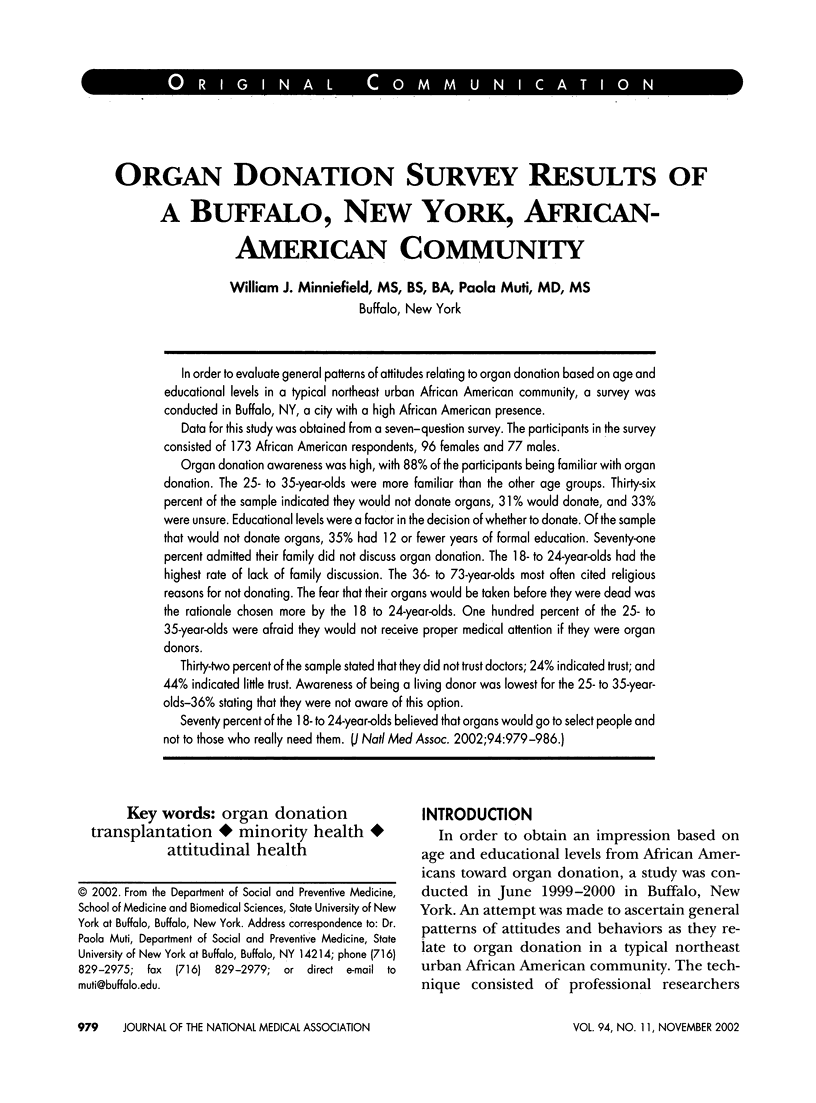
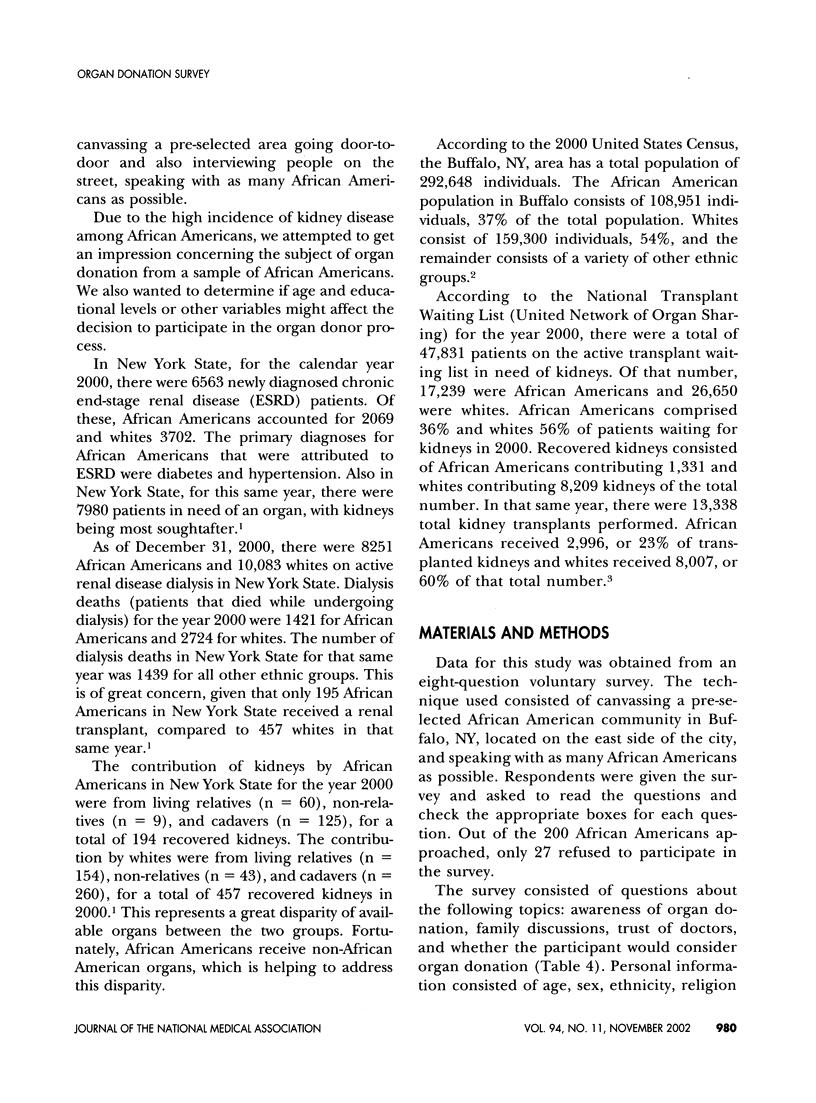
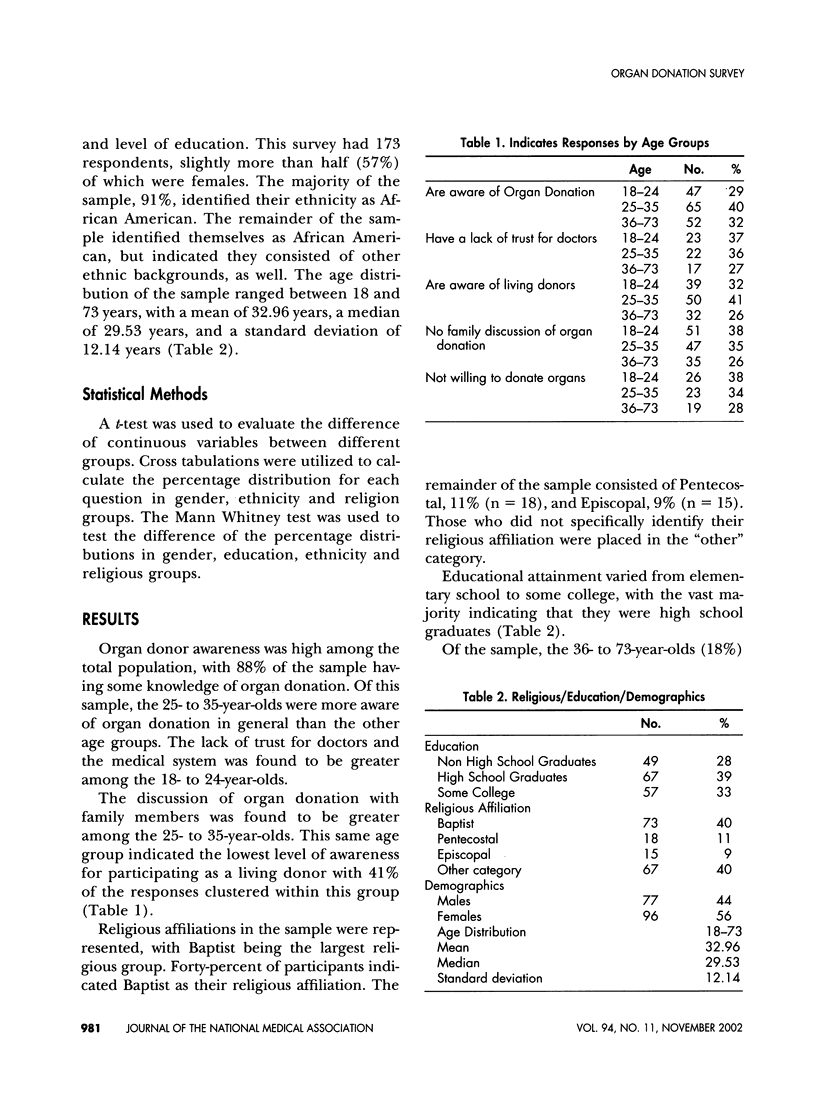
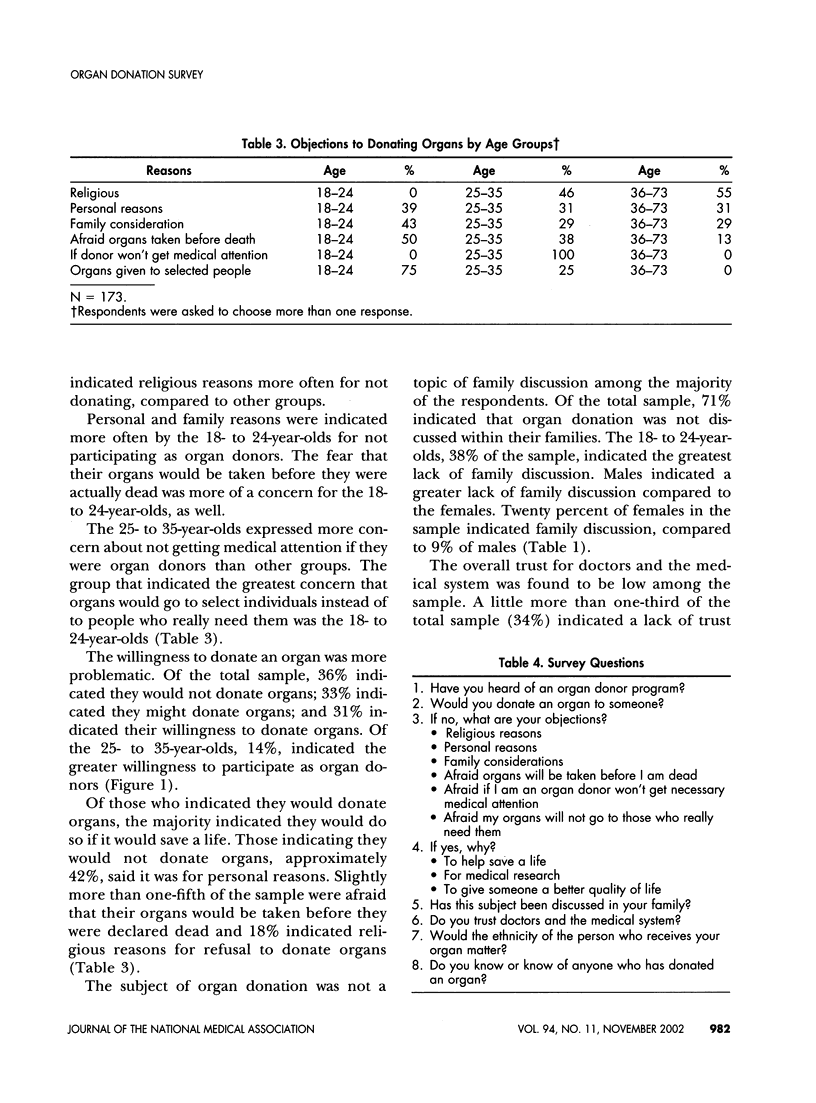
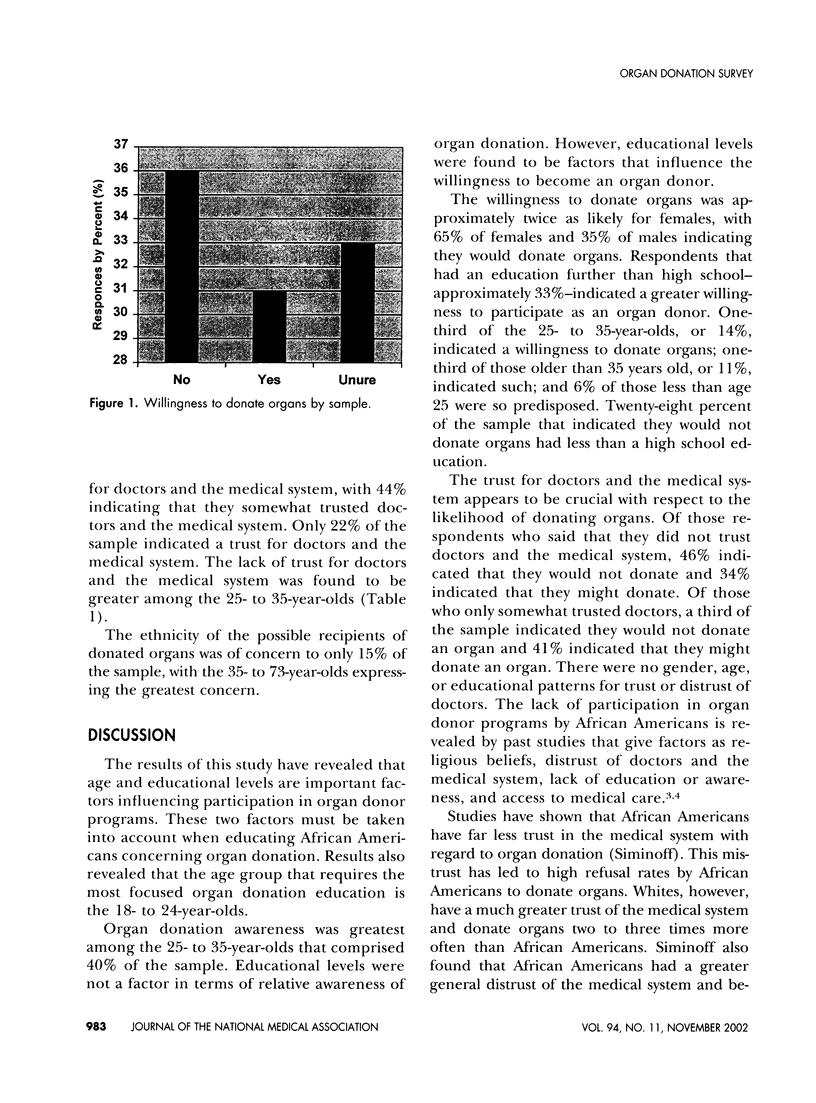
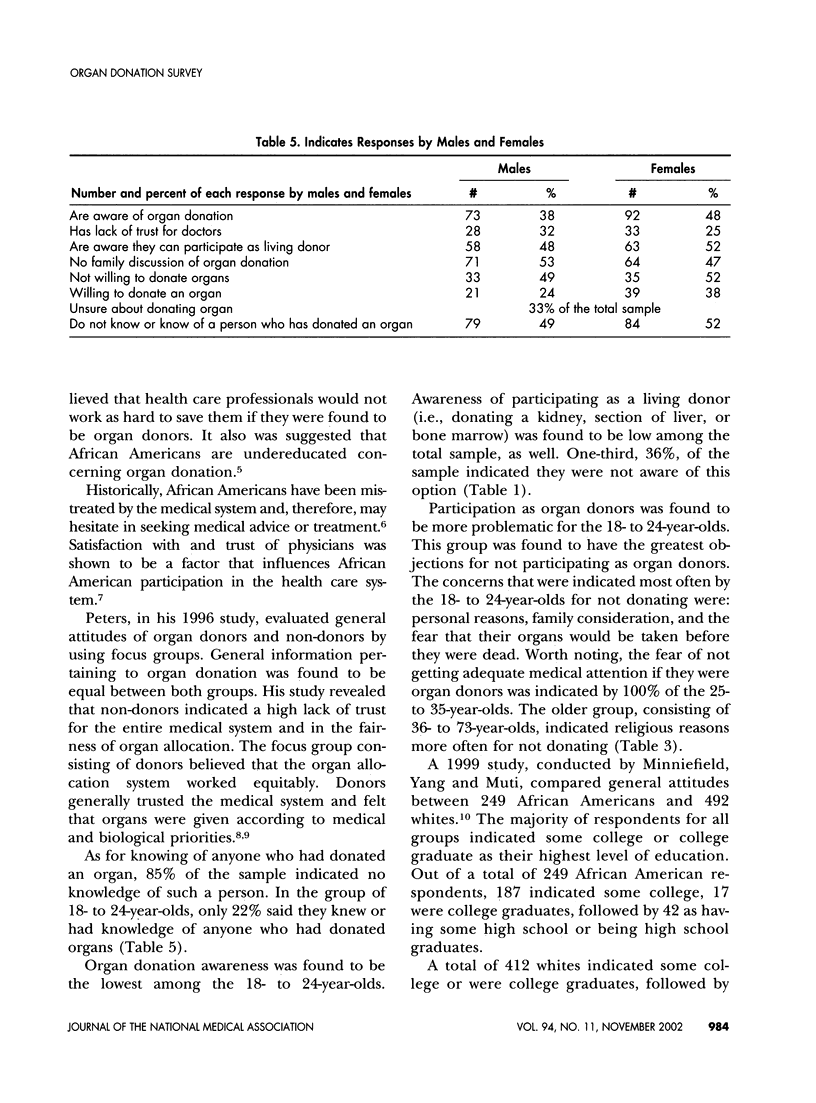
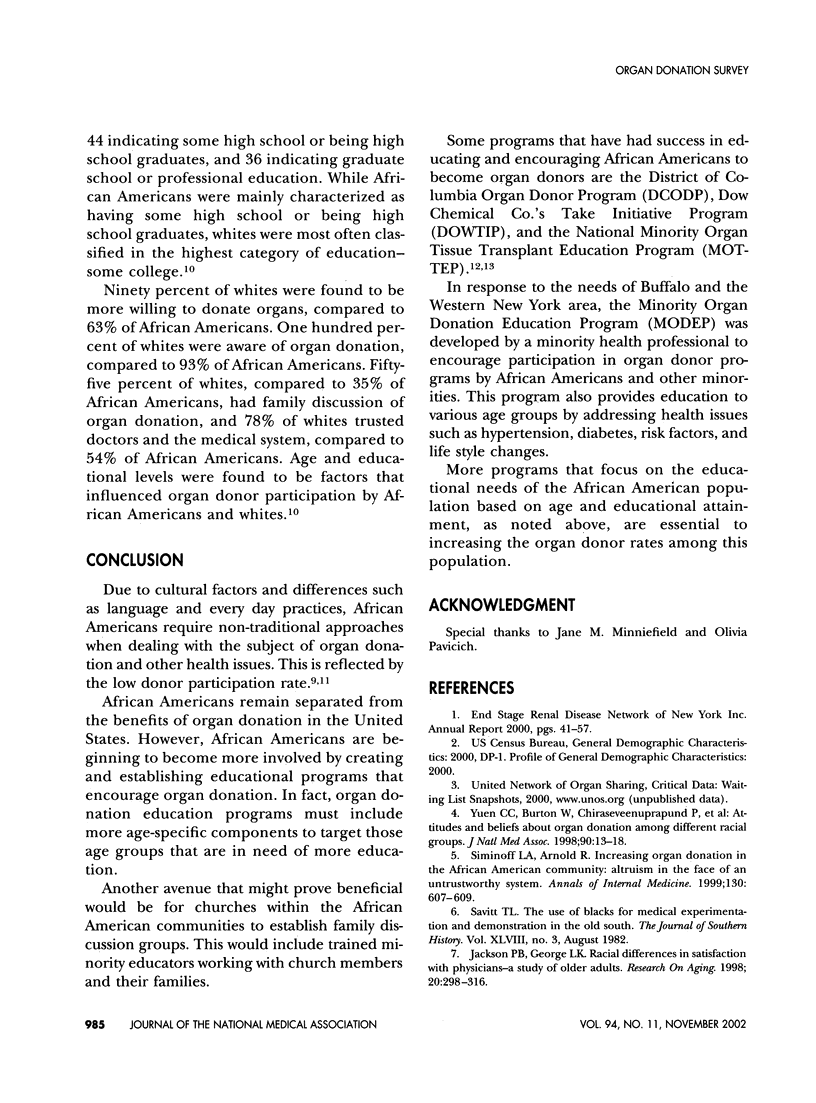
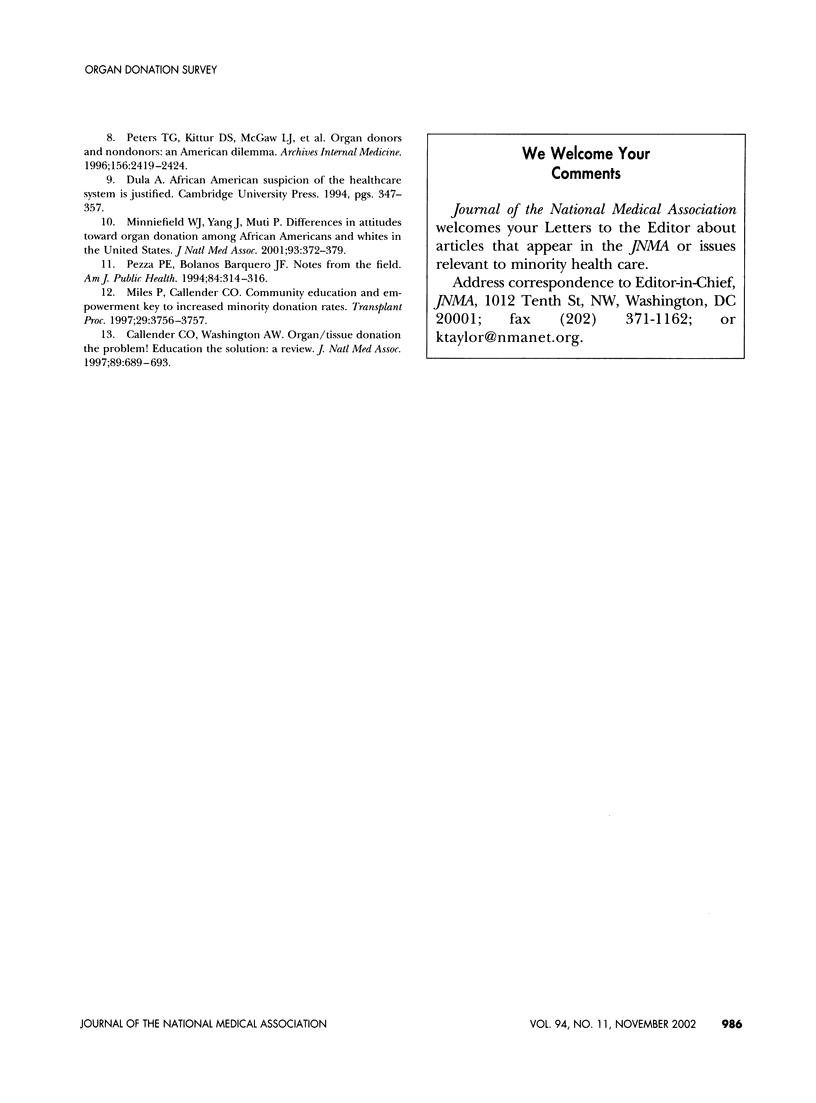
Selected References
These references are in PubMed. This may not be the complete list of references from this article.
- Callender C. O., Washington A. W. Organ/tissue donation the problem! Education the solution: a review. J Natl Med Assoc. 1997 Oct;89(10):689–693. [PMC free article] [PubMed] [Google Scholar]
- Dula A. African American suspicion of the healthcare system is justified: what do we do about it? Camb Q Healthc Ethics. 1994 Summer;3(3):347–357. doi: 10.1017/s0963180100005168. [DOI] [PubMed] [Google Scholar]
- Miles P., Callender C. O. Community education and empowerment key to increased minority donation rates. Transplant Proc. 1997 Dec;29(8):3756–3757. doi: 10.1016/s0041-1345(97)01100-7. [DOI] [PubMed] [Google Scholar]
- Minniefield W. J., Yang J., Muti P. Differences in attitudes toward organ donation among African Americans and whites in the United States. J Natl Med Assoc. 2001 Oct;93(10):372–379. [PMC free article] [PubMed] [Google Scholar]
- Peters T. G., Kittur D. S., McGaw L. J., Roy MR 1st, Nelson E. W. Organ donors and nondonors. An American dilemma. Arch Intern Med. 1996 Nov 25;156(21):2419–2424. [PubMed] [Google Scholar]
- Pezza P. E., Barquero Bolanos J. F. Clinica Tibas: a public-private partnership for health care delivery in Costa Rica. Am J Public Health. 1994 Feb;84(2):315–316. [PubMed] [Google Scholar]
- Siminoff L. A., Arnold R. Increasing organ donation in the African-American community: altruism in the face of an untrustworthy system. Ann Intern Med. 1999 Apr 6;130(7):607–609. doi: 10.7326/0003-4819-130-7-199904060-00023. [DOI] [PubMed] [Google Scholar]
- Yuen C. C., Burton W., Chiraseveenuprapund P., Elmore E., Wong S., Ozuah P., Mulvihill M. Attitudes and beliefs about organ donation among different racial groups. J Natl Med Assoc. 1998 Jan;90(1):13–18. [PMC free article] [PubMed] [Google Scholar]


